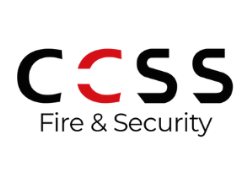
CCSS Fire & Security Mini Case Study
Overview
I was tasked with implementing Simpro at CCSS Fire & Security, whose primary customer base is in the social housing sector. This sector requires handling a high volume of jobs across numerous properties, encompassing fire, security, access control, electrical services, and more.
Discovery: Multiple Departments and Workflows
Detailed discovery was essential for planning a successful implementation. We ensured that individual users, teams, and managers had the opportunity to contribute to the process. This achieved two main goals:
- It provided the project team with the information needed to design the implementation, system setup, configuration, and workflows.
- It ensured that stakeholders were aware of the upcoming changes, allowing them to voice concerns and highlight critical workflow steps that might have been overlooked if only managers had been consulted.
Communication
Effective communication about the impending changes was crucial. We kept everyone informed about their role or department training and onboarding schedules, promptly notifying them of any delays or changes.
State of Play
CCSS was using an on-premise Access database system before implementing Simpro, which posed several challenges:
- Slow loading times.
- Significant downtime.
- A static system not updated by the provider.
- Legacy issues with workarounds developed by the team.
- Poor data integrity with unused categories, outdated notes, and duplicate records.
We used the transition to Simpro as an opportunity to cleanse all data, resulting in a clean and usable dataset, essential for smooth workflows, communication, accurate reporting, and insights.
Training
Training was provided in both group and one-on-one sessions. Since it had been a while since the last software change, employees needed to adjust to training for a new system. We conducted bulk group sessions for engineers and provided individual support as needed. Recognising that people learn in different ways and at different paces, we ensured understanding and offered immediate one-on-one support during the initial go-live phases.
During go-live, it was encouraging to see employees supporting each other, which eased the pressure on the project team. We didn’t employ a ‘train the trainer’ model; instead, natural trainers and helpers emerged within the business.
Double the Change
This implementation resulted in significant workflow changes, requiring employees to adapt to both a new system interface (UI) and new workflows (UX). While this was challenging, we maintained a calm and reassuring presence, reiterating the long-term benefits of the implementation.
Efficiency Improvements
The move to Simpro brought natural benefits like global search capabilities and improved navigation. More importantly, we eliminated most spreadsheets, integrating the information and workflows directly into the system, allowing teams to work within a single program.
Efficiency Gain: Converting Quotes to Jobs
Previously, quotes were produced in spreadsheets and loaded into the Access database. Upon customer acceptance, jobs were created anew, requiring manual transfer of quote details. Simpro’s native functionality allowed seamless conversion of quotes to jobs, saving time and resources for the sales, service, and install teams.
Eliminating Email Schedules
Schedulers previously emailed job details for the following day, as the old mobile app only displayed current-day schedules. With Simpro, scheduling is synced live with the mobile app, notifying engineers immediately and allowing them to review job details ahead of time. This eliminated the need for manual email schedules.
Timesheets
A key objective was to achieve accurate job costing and payroll through completed timesheets. Transitioning engineers from paper timesheets to the app required patience, persistence, and training. We phased in the use of the app, starting with basic functions and gradually integrating timesheet entries. After a few months, engineers were required to submit timesheets via the app, with a system in place for weekly sign-offs and issue resolution. This transition resulted in accurate, timely timesheet data.
Customer Integrations
CCSS receives bulk job instructions and provides bulk job completions and service certificates to housing associations. We developed a fully integrated solution within Simpro’s user interface to handle this, maintaining minimal changes on the customer side to respect their preferences. This integration ensures seamless information exchange with key accounts.
Go Live
I was physically present in the office five days a week during the go-live phase, gradually reducing my presence as the team became more self-sufficient. Go-live is inherently stressful, with unforeseen issues and mistakes expected and promptly resolved.
Adoption
Overall, adoption of Simpro was positive. Users quickly recognised the benefits, which facilitated acceptance of the change. While there were frustrations, these were mostly related to workflow differences rather than system capabilities. Regular focus groups and one-on-one sessions addressed and resolved these issues, leading to a smooth transition.
